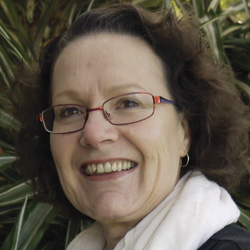 Knowledge and willingness to work together are key ingredients of reform.
Knowledge and willingness to work together are key ingredients of reform.
Being a journalist is a privilege. That may come as a surprise to many who read that Forbes magazine has ranked it the worst career of 2015. After 40 years in the industry, you come to realise that Forbes is just another squawk in a raucous farmyard but it is exactly this cacophony of opinion that makes the job exciting – and career defining. Ms Jan Hallam
Ms Jan Hallam
Whose opinion is worth noting?
After a lot more listening, whose opinion is worth reporting? What is my opinion?
Am I sufficiently informed to have one? I am a subscriber to the more you learn, the less you know theory so I fight mightily to keep an open mind.
Of course no one’s perfect and a hastily hatched idea can prove to be one of many red-faced moments in a long career.
A couple of weeks ago a doctor asked me what was in this job for me. It made me think. I am not a glory seeker, nor do I particularly desire foisting my own opinions on unwilling or unsuspecting readers.
There’s a whiff of abuse of power about that, but this is the editorial after all! So after years of listening to tens of thousands of machinations, frustrations and humiliations, mostly off the record, what’s in it for me – and you – is information.
Journalists can’t say to a patient, this is what’s wrong and this is what we can do to improve it; they can’t make politicians do the right thing – whatever that is!
What we can do is try to gather as much information as possible, tell our audience what we’ve found and perhaps, if we’re super-egos, draw some lines between the dots. This may, but mostly may not, spur the reader to dust off his or her democratic rights and assert their indisputable influence in our society.
Perhaps, even, a call to arms?
To enable me to sleep at night, I say to myself, I can only let people know when I think a train wreck is coming. I can’t push them out of the way.
OK, so is a disaster on its way?
That’s easy, there’s always a disaster waiting to happen. The fact we avoid so many of them is testament to the robust nature of our libertarian society and the checks and balances we have in place.
This is going to be a big year in the history of our country and for the fortunes of our health system. The past 18 months, with a marked crescendo since Malcolm Turnbull became Prime Minister, the political narrative is reform; the political imperative is cost-cutting.
The two are irritable and incompatible bed-fellows unless, of course, they mean the same thing?
That really would be a disaster and a shameful loss of opportunity to create a better health system that will steer us to a sustainable future.
May’s Federal Budget will reveal which way this Government will point the ship. We all know we’re heading to the polls, sooner rather than later. When you start with ‘everything on the table’ and then one by one (GST Brussels Sprouts and Lambs Fry Medicare) they are removed, an election is looming and reform becomes a moveable feast.
The RACGP last month released its pre-budget submission calling on the Government to lift the freeze on MBS indexation, fund 400 new intern community placements by 2020-21, make a $162.m investment over three years to pilot a GP-centred Medical Home model to 500 practices and commit $27m over nine years for a general practice research program.
The GP college is just one of many interest groups putting their wish list to the government. The AMA’s list is both extensive and expensive, with the national president Prof Brian Owler insisting the Government “not retreat from its health responsibility”.
The implication here is don’t touch health with that dirty scalpel of yours! However, the detail settles into a narrative of indexation of patient rebates, increased hospital funding and more training places as well as equally thoughtful ideas for reform.
The information input from just these two organisations alone is vast. Clever, caring people wanting new models of care that will take the health system into this new challenging era with an element of resilience; clever, caring people who want to ensure that their craft groups don’t get trampled on; clever, caring people protecting their patch – or, the more daring of them, moving into someone else’s.
I hear the train a’comin’.

